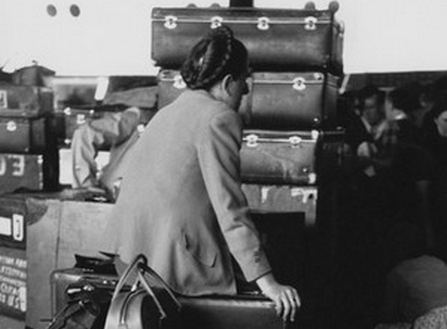As this period of isolation has ushered in a new understanding of what it means to work and collaborate remotely, the branch of academia known as the “digital humanities” is now more necessary than ever, signifying a new prominence of technology in our approach to scholarship.
This is exactly the sort of enterprise that Intellettuali in Fuga (Intellectuals Displaced from Fascist Italy), headed by Professor Patrizia Guarnieri of the University of Florence, accomplishes. The mission of this research project is to draw attention to the emigration of scholars who fled the Italian fascist regime. Tracking the movements of hundreds of intellectuals as they sought political refuge in Northern Europe, South America, the Middle East, and the United States, the research links professors, journalists, and scientists in every corner of the globe. These dynamic stories also include maps, timelines, compelling memories and photos from family members of these men, women, and children.
Among those who decided to move to Eretz Yisrael , take, for example, scholar Enzo Bonaventura, a psychologist at the University of Florence, who in 1939 emigrated with his family to Jerusalem, where he became a professor at the Hebrew University. His wife Matilde became a teacher of Spanish and two of his children later became illustrious scholars: Daniel Asheri in Tel Aviv, a world-renowned nuclear physicist, and David Asheri, a specialist in Greek history at the Hebrew University. This was also the institution where Umberto Moshe David Cassuto, chief rabbi of Florence until 1925 and one of the pre-eminent Hebrew scholars of his day, taught biblical studies.
In order to reconstruct these experiences, Intellettuali in Fuga utilizes documentation available at the Central Archives for the History of Jewish People (which has given its patronage to this project) and material produced by the associations that were set up to help displaced scholars in New York (ECADFS) and London (SPSL). Further material was supplied by various institutions, such as the Hebrew University, while additional documents were collected from scattered correspondence and memoirs. These personal testimonies are crucial to the work, as they breathe a vital pulse into the research. If upon review of the online alphabetized list, you should recognize the name of a scholar as a relative or acquaintance, we urge you to contact the project. Any and all input is invaluable.
To find out more, visit http://intellettualinfuga.fupress.com/en

